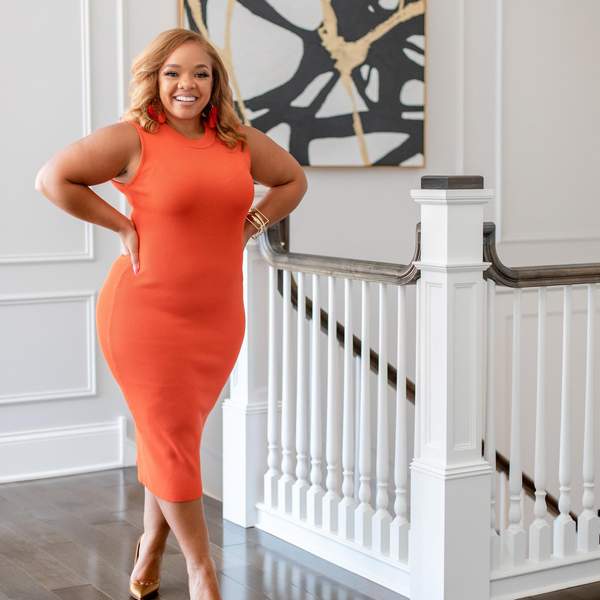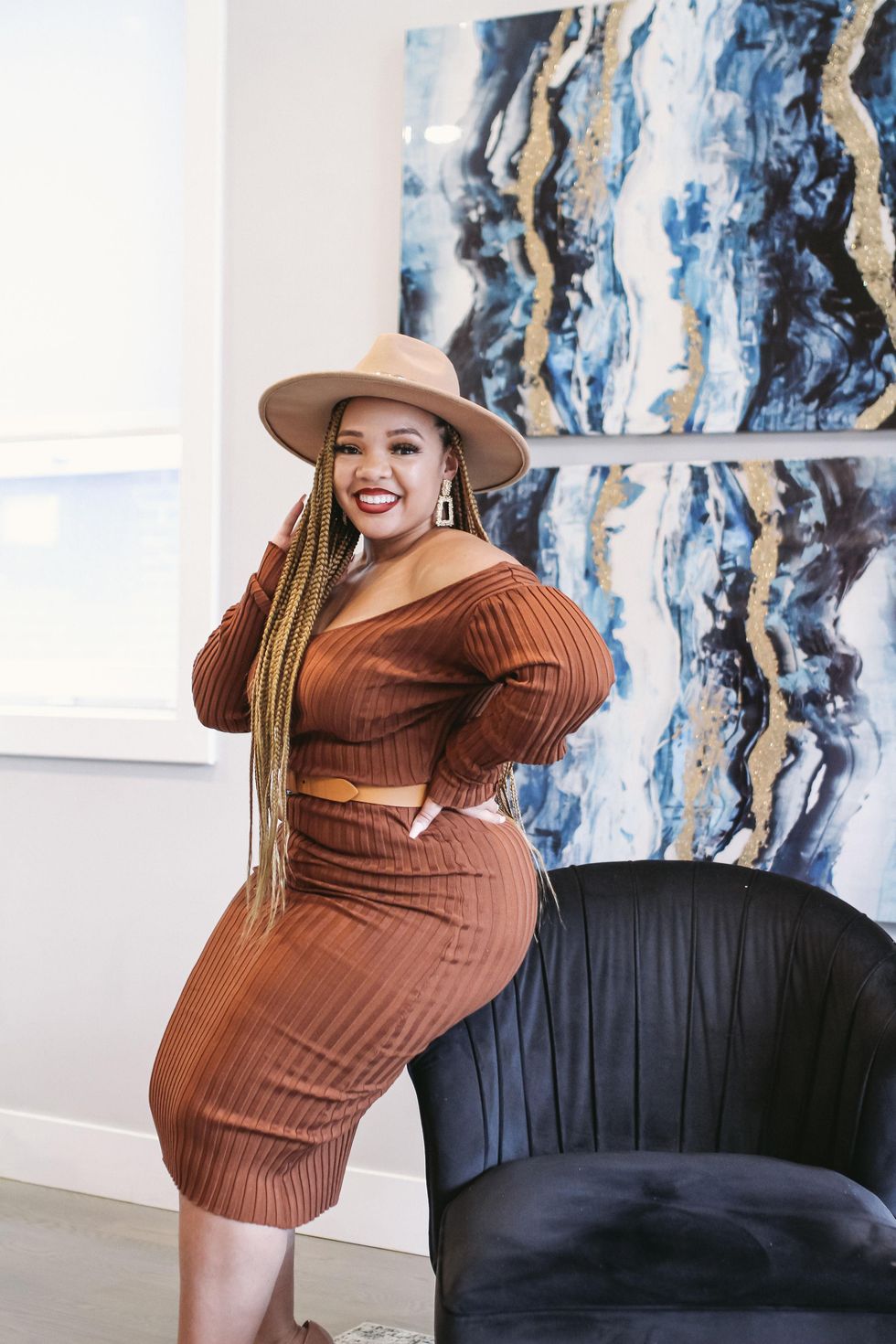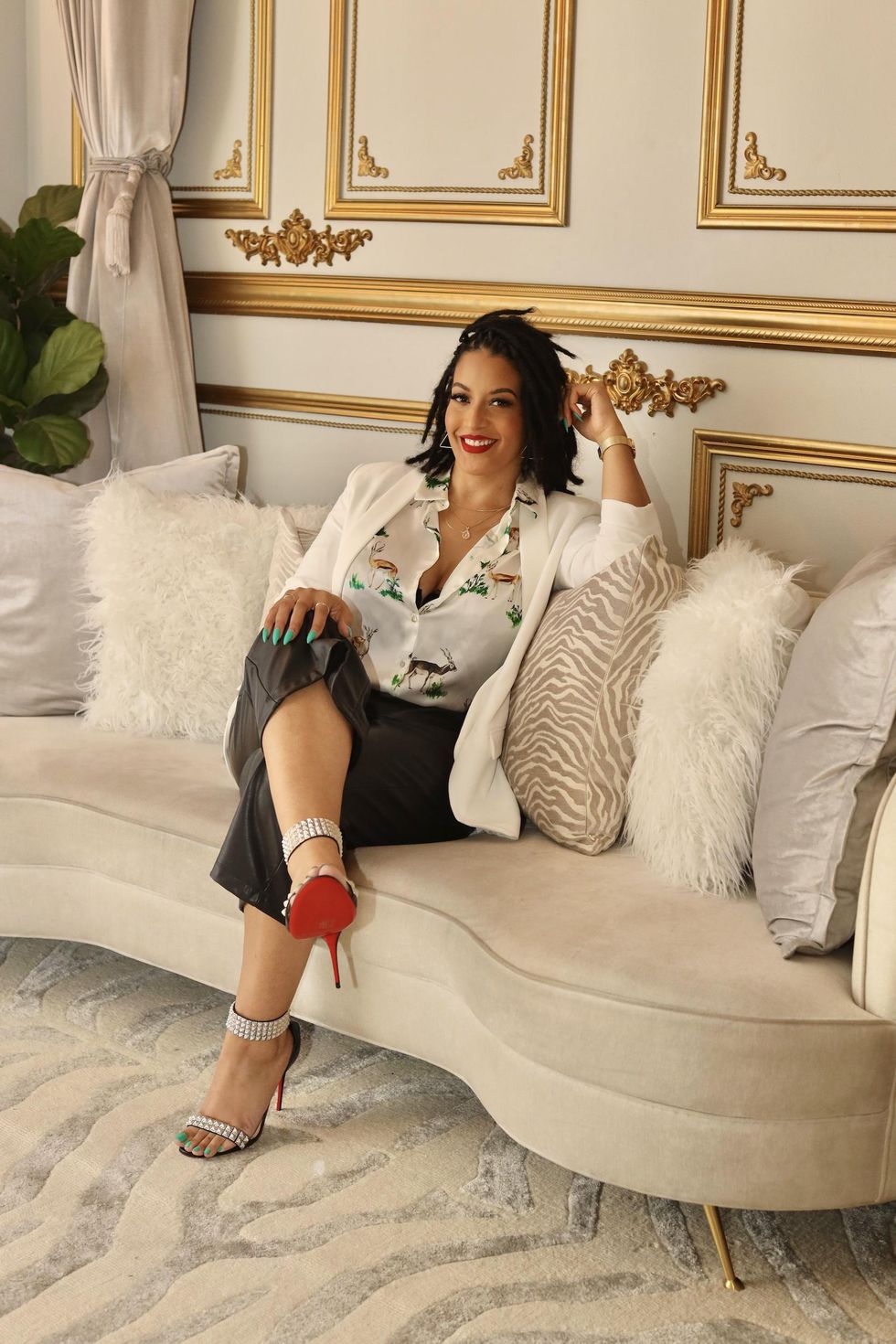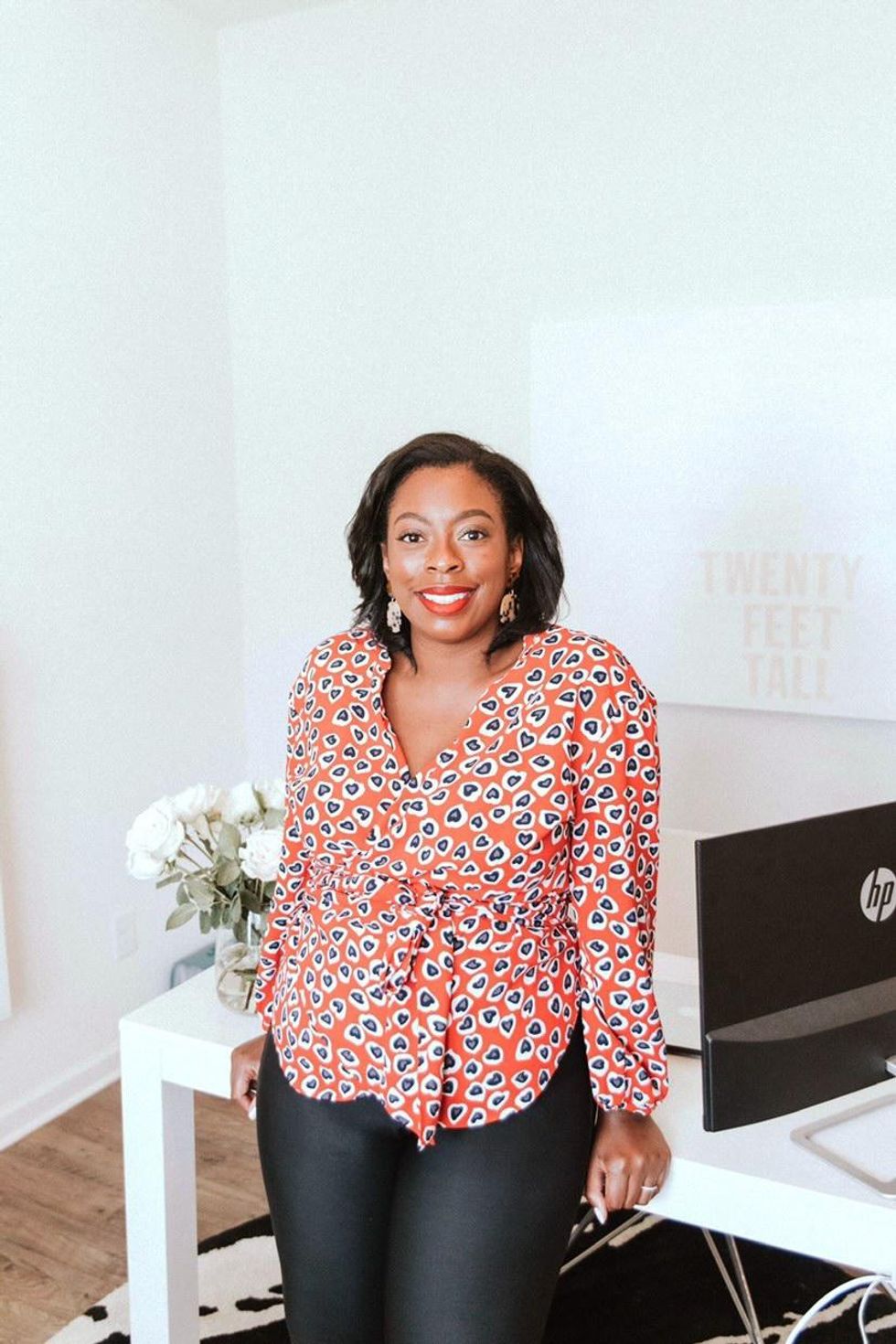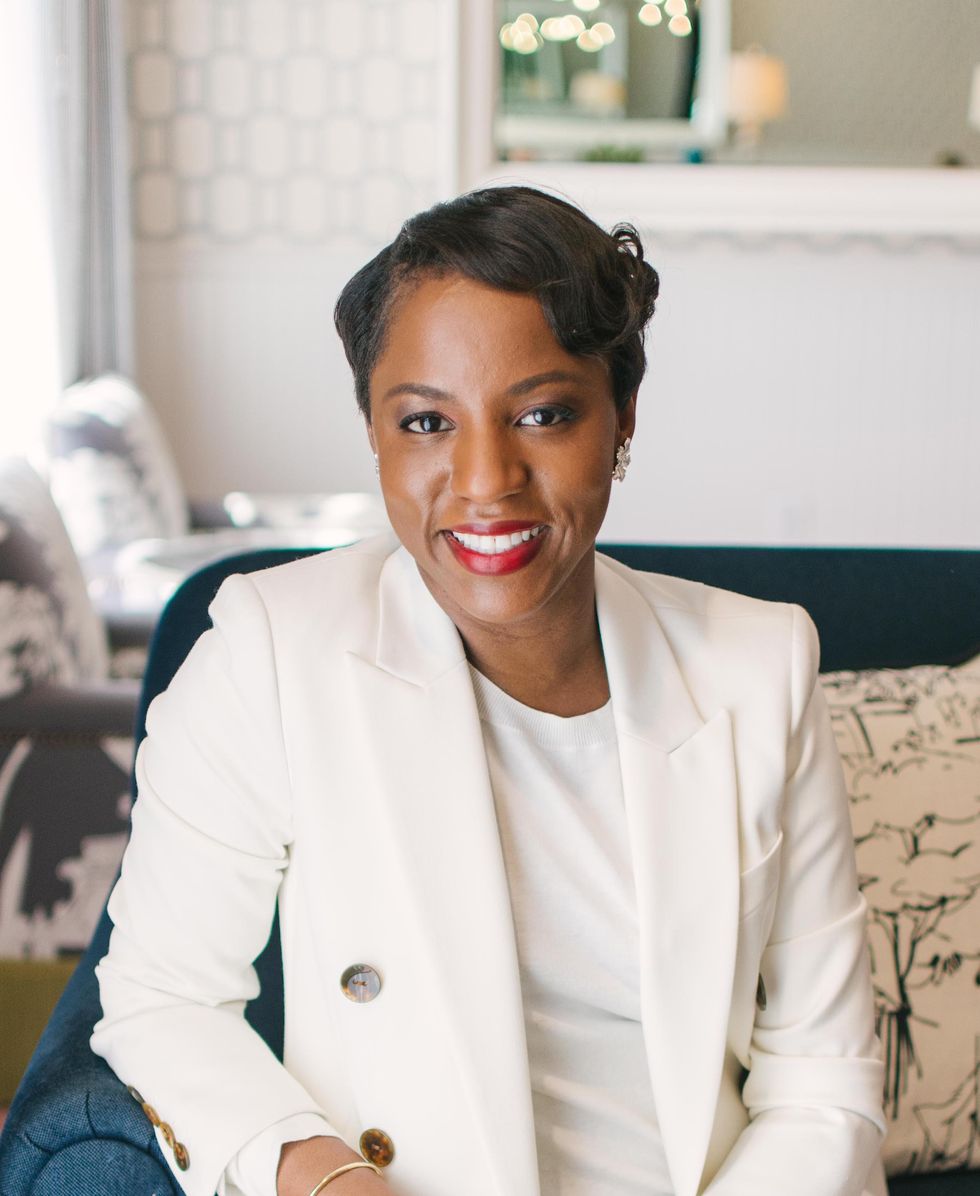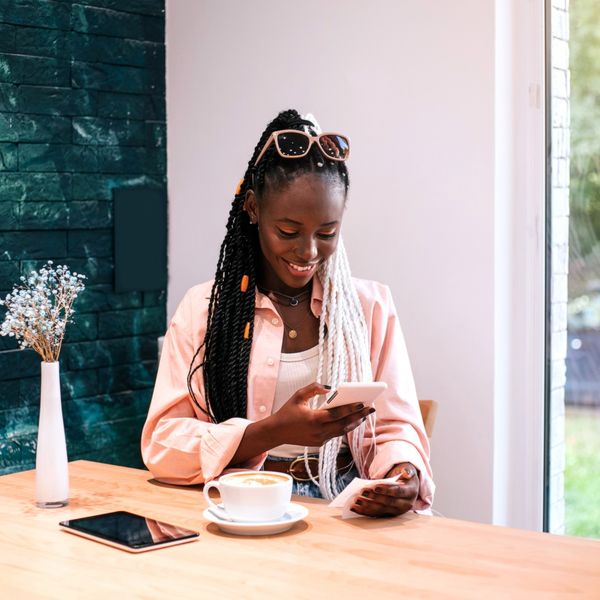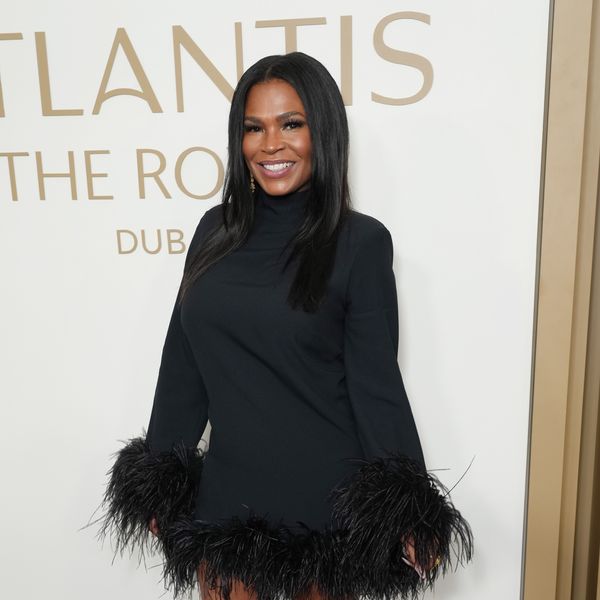I think it's fair to say that most of us long to reach that place where the money resides, especially in the present times when life is so uncertain and people are likely to lose their jobs at any given moment. On the other hand, perhaps thanks to the plethora of entrepreneurs that document their journeys on social media, there's the sense that abundant financial wealth seems more accessible now than it ever has before. With that said, despite all the step-by-step guides to becoming rich available on the market, we can still hear the same question echoing in our heads: How do I get to the bag, though?
Well, apparently, it's in the mind, chicas. It all happens in our minds first.
The mind is a powerful tool that, depending on how we choose to use it, has the power to make or break us. This is a fact that the bomb business owners I had the opportunity to interview as part of this feature said to have learned the hard way while on the path to acquiring their Boss badges. The four ladies got real on the struggles that they've faced in the past which almost prevented them from becoming who they are today, the mindset shifts that helped overcome them, and more.
Befriending Fear To Unlock a World of Luxury
For the longest, I followed the 'American dream.' I studied mechanical engineering in undergrad, received my MBA by the age of 23, and transitioned into a job in Corporate America [and] began earning six figures. However, despite all the benefits of working that job, I knew after a little time that it wasn't what I wanted to do forever. Corporate America, I felt, deprived me of being the master of my own time. My time was theirs and I had little to no say on that.
Many times, I found myself wiping my tears because I had to work extra hours or on the weekends to complete the tasks that I was asked to do at the last minute, all while my personal life and loved ones were waiting on me. When September 2017 came, the moment finally came for me to reclaim my freedom. Although I was deathly afraid and almost talked myself out of it, I decided to quit my job and pursue my dreams.
Fear, I must say, is the companion that's been following me throughout this whole journey from giving up on a six-figure salary to building my own six-figure company. It's still there, to be honest, but I've learned how to tame it.
In the beginning, I feared wandering in the unknown. While we do know what we decide to walk away from, there's no certainty that what we'll find on our path will be any better. And then, once I became my own boss, the fear that my finances would never advance as much as my career did quickly took over me.
A year before taking this leap of faith, I launched Epic Fab Girl, "a community for women entrepreneurs who want to build profitable brands and grow their faith." The latter initially started as a blog but after I quit, I had to figure out a way to monetize it to generate revenues. On top of that, in January 2018, I launched my own marketing agency. I wanted to offer my target audience coaching services and digital courses to help them scale their businesses to six figures. Funny thing is, I was nowhere near earning such an amount of money myself, even after giving my business more than a year to grow and flourish.
While my clients were getting the desired results, on my end, I was struggling financially; I faced difficulties paying my bills, my car had been repossessed and I'd received foreclosure papers on my home as a Christmas present. Earning six figures has never been a requirement for me, but it was somewhat mandatory if I wanted to maintain the level of comfort I was living in. All of which ultimately had me contemplating [whether or not] to go back to Corporate America. However, while it's a move that my entourage encouraged me to make, I never received any signs from God that meant this was what He wanted for me. So, as a woman of faith, I continued walking the path that I was already on.
As soon as 2020 rolled around and the pandemic hit, that's when everything changed for the better. Within the first semester of the year, my revenues reached six figures for the first time—which wouldn't have happened had I decided to take some steps back or had I simply not shifted my mindset to believe that my services are worth the luxury price point.
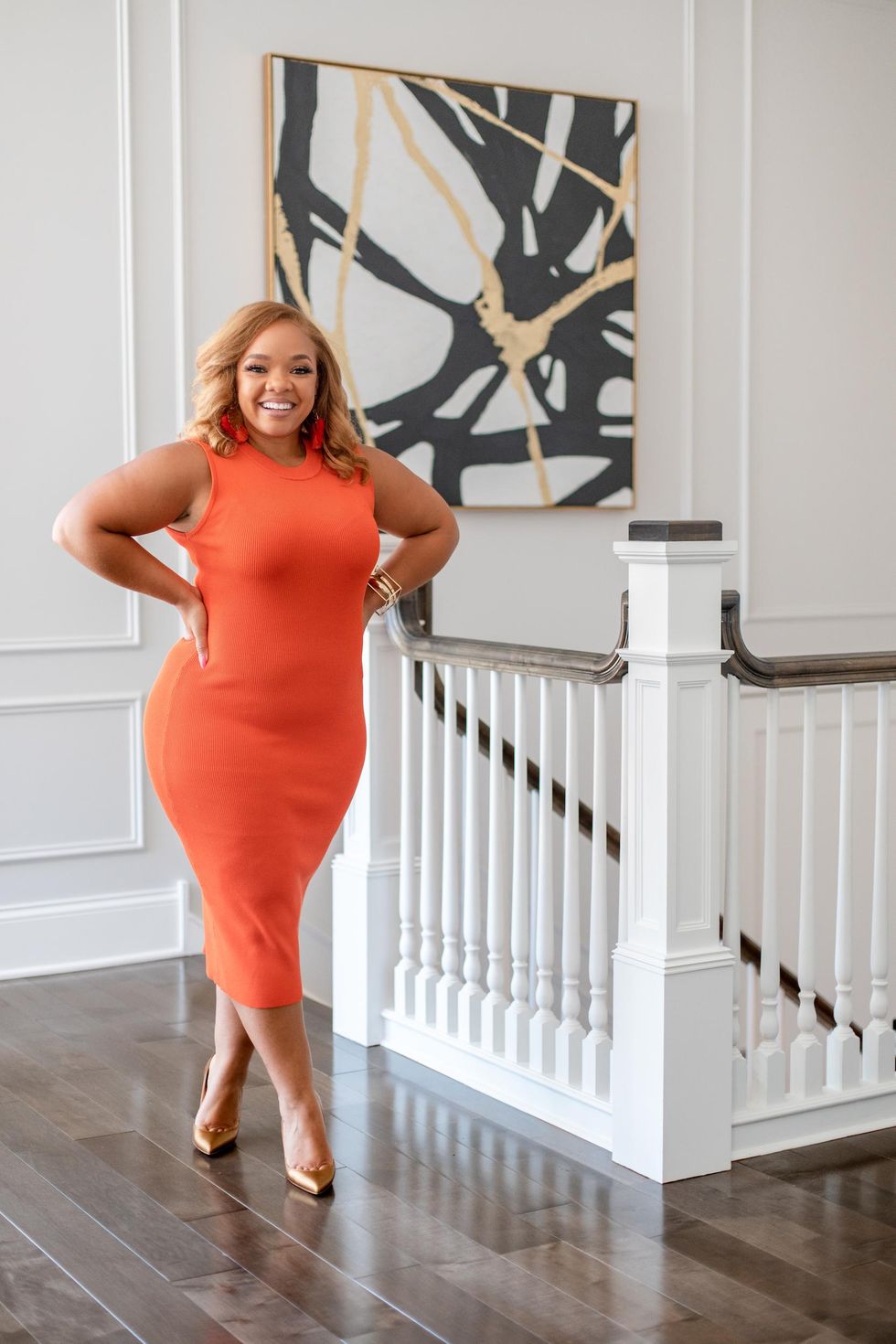
Image courtesy of Candace Junée
It probably wouldn't have happened either if I hadn't invested in a coach to help me make the shift on top of using affirmations and visualization to help me own my abilities and brilliance when I'm doubting.
Here again, fear made me doubt whether I was making the right decision or not because I wasn't fully convinced that my audience would pay those prices—although some of my clients were already paying me four figures monthly for some of the services that I offer. But because I'd managed to reach a level of self-confidence high enough to recognize that I was excellent at what I was doing and understand that my financial situation was only the consequence of me undercharging for my services, I was ready for those who want to work with me to pay premium prices.
The best thing was to realize that I wasn't insane for believing that numbers don't necessarily throw people off. Quite the contrary, they attract the right clients, the kind that can afford your expertise, and therefore make a way for money to flow to you easily.
Wherever you find yourself in your journey, fear is going to rear its ugly head. To me, it's a sign that you're on the right path. You've probably read somewhere that, "If your dreams don't scare you, they're not big enough." I believe that it couldn't be more true. Be willing to bet on yourself and know your value. Trust that anything is possible.
Follow Candace on Instagram @candacejunee.
Unlearning Scarcity To Discover Absolute Abundance
One of the biggest personal breakthroughs I've experienced thus far is realizing the vital value of unlearning. Unlearning the things that hold you back is just as important as learning new [things]. It's necessary to be successful and unlock your potential.
I was a mother at the age of 16 and was raised by a single mother solely responsible for five children. Needless to say, I had to unlearn the scarcity mindset engraved in my head from childhood. Becoming a mother before I became a woman also played a major role in the endless struggles that prevented me from exploring the boss lady hibernating within. Like many, I didn't have a direct example of entrepreneurship; I was raised to play safe and to think that financial stability was something that only Corporate America could offer.
With age and an evolved self-awareness, I began to take risks and explore opportunities I normally wouldn't as a way to overcome those struggles.
In 2012, I relocated from Los Angeles to Arizona after being laid off from a corporate position that I occupied for five years. This move that I considered to be bold truly cultivated the opportunity for me to discover what my passion was. Thanks to Arizona's low cost of living, I was able to quit the new job that I'd found after working there for a year to live off of savings and explore revenue-generating opportunities which I'd hoped would unveil my purpose and passion. Moment of transparency, I must give credit to my supportive husband and his steady income. Without him, I wouldn't have been able to do so.
I tried fashion blogging and freelance writing for local publications. I even dabbled in fashion event production. Although all of that was fun, it wasn't what ignited the fire in me, which is truly what I was seeking. After many failed attempts, I found myself enrolled in a lash extension training class—a $1,300 investment. My lash artist at the time encouraged me to do so because I'd always ask her thousands of questions about how she did mine. Unexpectedly, this training class is where I found my spark.
Back in the day, I wasn't aware of all the doors that would open from just trying something new.
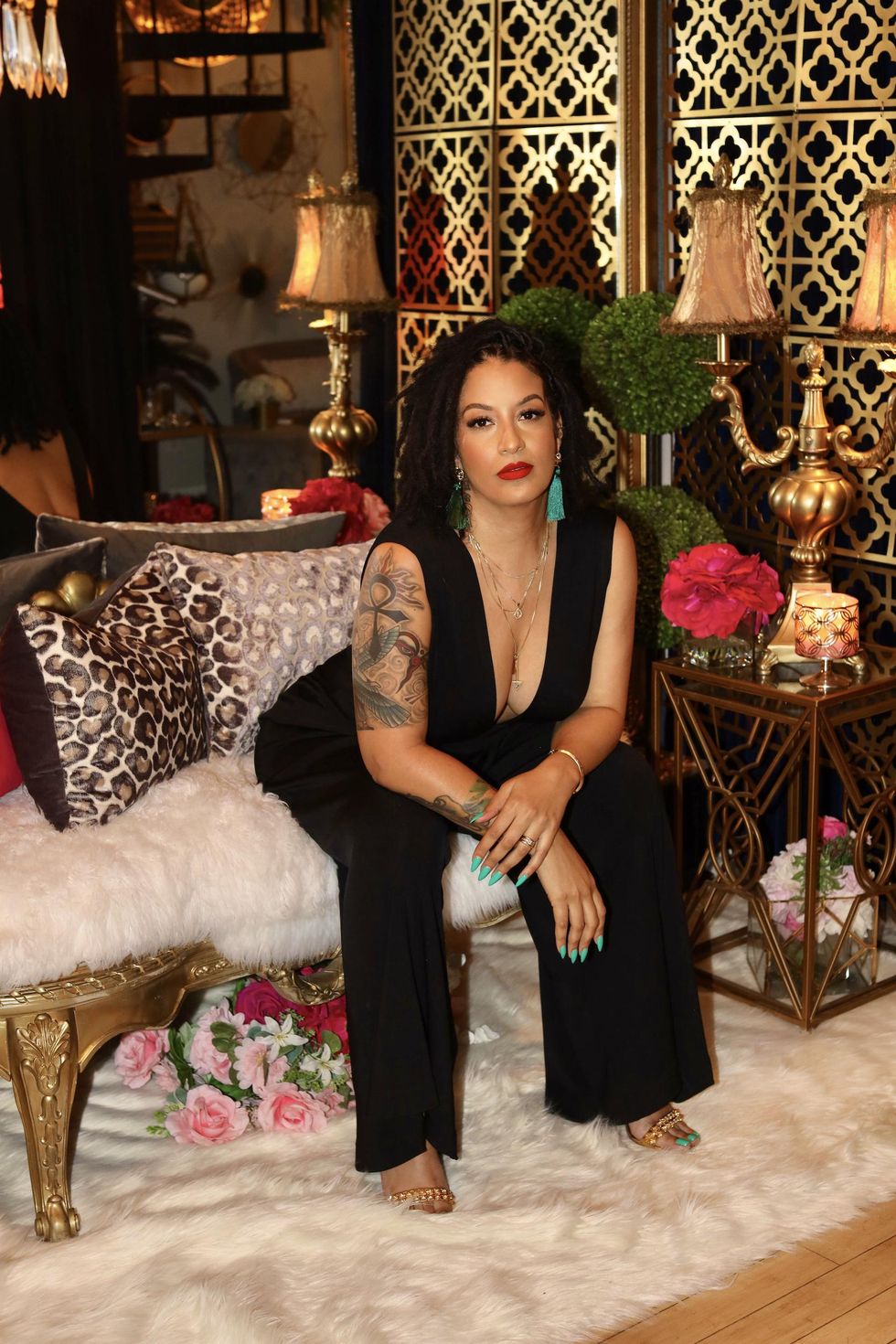
Image courtesy of Chris Bible
Never would I have thought that I'd one day run my own business, let alone work in the beauty industry. But it turned out that lashing was a service that quickly led to the creation of my own training academy and a full-fledged lash product line.
Seeing the revenue that I was generating is partly what helped break the scarcity mindset that I earlier mentioned I was suffering from. What was truly life-changing, I'd say, was practicing daily affirmations as well as investing in a mentor, Pauleanna Reid for instance, salon staff and marketing experts. This is what truly propelled me to my current level of success and showed me that taking control of your daily rituals on top of having an organized process for goal-setting is the difference between having a side hustle and running a six-figure business.
A boss, in my world, is a leader. She has clear morals and values, yet balances that with an attitude that gets ish done by any means necessary. Sacrifice, hard work, and patience are the ingredients to achieve success.
I didn't reach boss status before I made countless mindset shifts, alleviated excuses, welcomed uncertainty with confidence, and followed an unorthodox schedule. Most importantly, I had to embrace that I was worthy and capable of reaching a certain level of success and that it could be done all on my own. Of course, some of these shifts were easier to implement than others, while some were made out of necessity. The hardest changes dealt with inner work and self-love. I struggle with imposter syndrome and reminding myself that I am worthy is a constant fight. Having to embrace who you're meant to be can be frightening but growth never comes from comfort; it thrives in the newest version of ourselves.
Follow Chris on Instagram @sheluvslashes.
When Failure Serves as an Expensive Stepping Stone to Success
I had a huge mindset shift in my early 30s when I launched a business that failed—but from which I recovered. That experience taught me a ton from bringing a dream to fruition to pivoting and iterating.
Five years or so ago, I launched a business with two friends and partners whose purpose was to encourage college students, particularly HBCUs students, to travel the world. My friends and I who are all HBCU grads have had the opportunity to travel abroad when we were younger and being aware of the benefits of doing so, our desire was to give that opportunity to an audience that didn't have the same ability as we did.
We made a ton of mistakes during the launching process. We firmly believed that this project would be the solving of an issue, however, we didn't succeed to shed light on the said issue in a way that resonated with our target audience. We failed to properly grab their attention. And then, we launched too big, way too big—and we actually paid for it.
Looking back, that situation was ironic considering that prior to that, I'd spent a significant amount of time teaching as a product manager—and now as a product management career coach and business coach to women of color entrepreneurs—to actually not do this [launching too big]. It's always best to start small and test your audience first, which is a fact that I was proven once again when I later found myself launching another venture with a pair of two other friends.
For years, we'd casually played a game about dating deal breakers during our girls' nights and wondered if it would be commercially viable. We wanted to create it and then sell it to the public. However, despite how good we thought this idea was, having learned from my past mistakes the hard way, I made it clear from the start that spending any money was out of the question for me; an announcement that caused my friends to glance at me with a confused stare stating that it would therefore not be feasible. But I knew we would figure something out. And we did.
We managed to come up with the simplest launching strategy which cost us the bare minimum but enabled us to maximize our success.
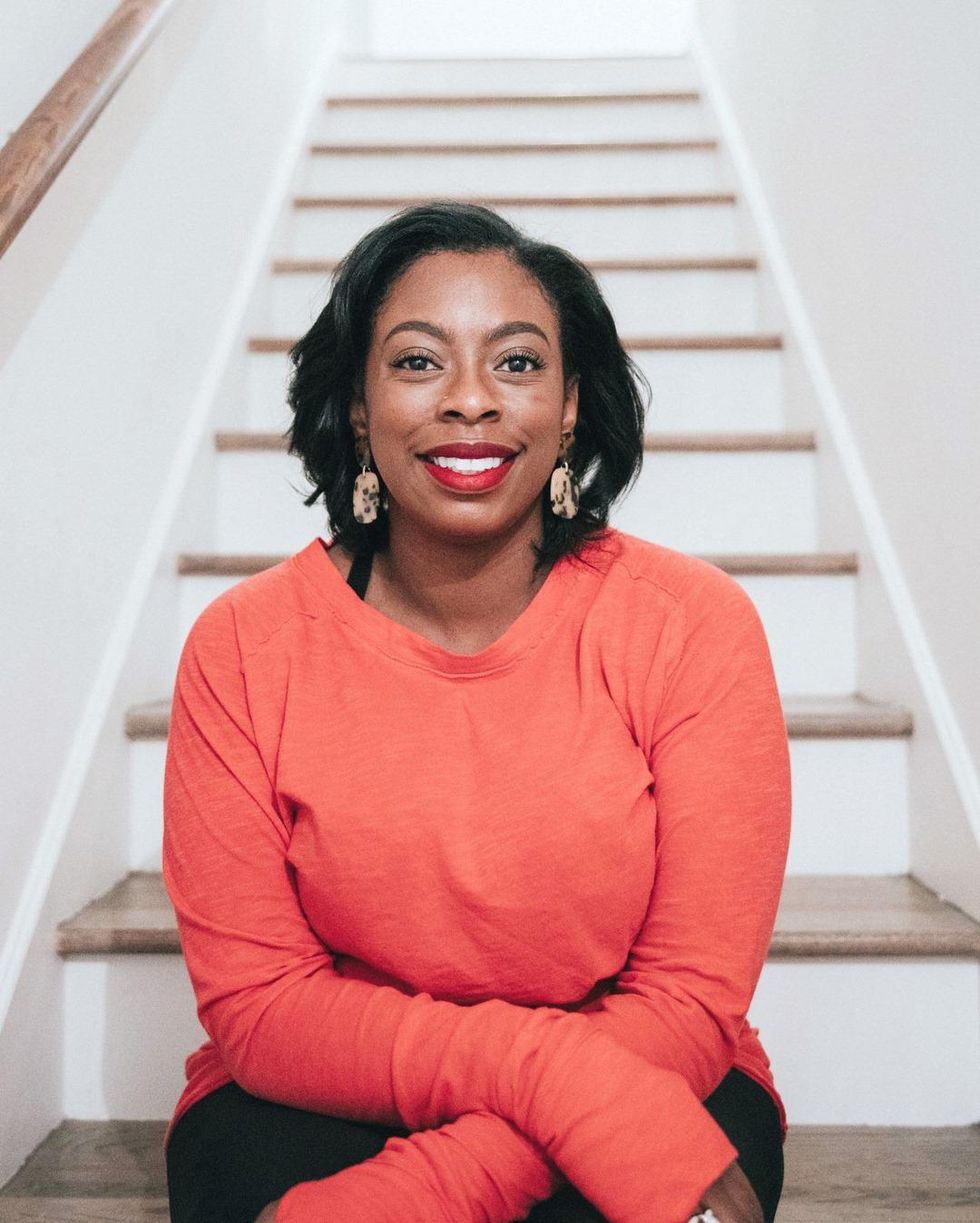
Image courtesy of Miranda Mader
To introduce the game to our audience and test both, we decided to organize a small gathering with our friends. The plan was to play with them so they could see how much fun it is and therefore potentially turn those friends into customers. As for the cards' prototype, my partners and I had opted for at-home printing, a cheap and efficient solution. When the ladies validated our concept that night, we were given the green light to start the next step of our launching process: social media promotion. There again, we'd only invested a few dimes in marketing, just enough to get a decent number of customers to pre-order the deck and allow the real production of our card game to finally begin. We suddenly had the cash to order inventory to cover the pre-orders and more, without taking a hit upfront.
While my initial attempt at entrepreneurship was a complete failure, the lessons that I've learned from our mistakes [not building proper brand awareness and launching too big] are the main reasons why my other partners and I managed to turn this second endeavor into a complete success. I told them that I wouldn't risk losing any more money and adopting such a sales strategy that spared us from buying in bulk without being sure whether we'd sell allowed me to honor my vow.
As I previously briefly mentioned, I now work as a business and career coach. I've been self-employed for approximately two years now, and the services that I offer allow me to generate a six-figure revenue. I believe it's worth noting that the journey hasn't been linear and didn't come without low-grade anxiety. Self-doubt was also ubiquitous; the "will-I-be-able-to-sustain-this-long-term" fear was real. But the thing that I did and which today allows me to say that I'm living a life beyond my dreams was pairing my ability to execute, my vivid imagination, and Godly faith. It's been equal parts of each: envisioning an outcome, believing that it's available to me—which has been difficult because as a young girl, I hadn't met many black women entrepreneurs who independently monetized their talent for the personal and professional benefit of others—, and creating and executing a plan to achieve.
Shifting from fear to possibility has gotten easier over time. I equate it to the first time you tackle a small fear. It's nerve-wracking at first but through repeated actions, it becomes a part of your muscle memory.
Follow Blair on Instagram @blairpres.
Learning How To Cope With Introversion and Impostor Syndrome
My name is Bola Sokunbi, I'm the founder and CEO of Clever Girl Finance, "a mission-driven financial empowerment platform aimed at providing women with the right products and services as well as financial guidance." I'm also a super introverted individual who happens to suffer from impostor syndrome, all of which can be a tad bit problematic when you have high professional ambitions. I wish I could say that these feelings fade away with time and experience, but they don't. However, what the former and the latter did help with was to figure out my coping mechanisms.
Before I started my business, I remember how much of a struggle it was for me to make myself seen and heard when I found myself in important rooms. Instead of being as aggressive as my colleagues were in the pursuit of coveted promotions, I was trying to stay as quiet and as little as possible. I was unable to position myself for further opportunities—and had my advisor not convinced me that the founder of a brand is as important as the brand itself, my inner struggles would've probably prevented my company from growing as well.
One of my biggest challenges was to believe that my story—the story of how I managed to save $100,000, for instance—and accomplishments are valuable enough to be shared with the world. The question that would always pop up in my head was, "Who are you to actually say these things?" When I finally had the guts to put it out two years after the launch of my business, it turned out it became a huge anchor in terms of brand awareness. The exposure my story was given by other media outlets showed me that my fears of being judged were unfounded for people were actually inspired by it, and it also made me realize that what I'm doing is bigger than me.
When I first launched Clever Girl Finance, I used to decline all public speaking appearances and big events that would make me the focal point. Now, because my mindset shifted to thinking of purpose before self and I've learned how to cope with them, I'm able to seize those opportunities.
My secret when it comes to surviving being an introvert plus impostor syndrome as a business owner is to step out of my comfort zone when I need to and step back into it when I can.
When I step out of it, I prepare by repeating affirmations out loud, hyping myself up. I look for an accountability partner, whether it's a friend or my husband so that I have someone to push me and make sure that I do whatever it is that I'm supposed to do. And then, once it's done, I allow myself to rest. Keyword: rest.
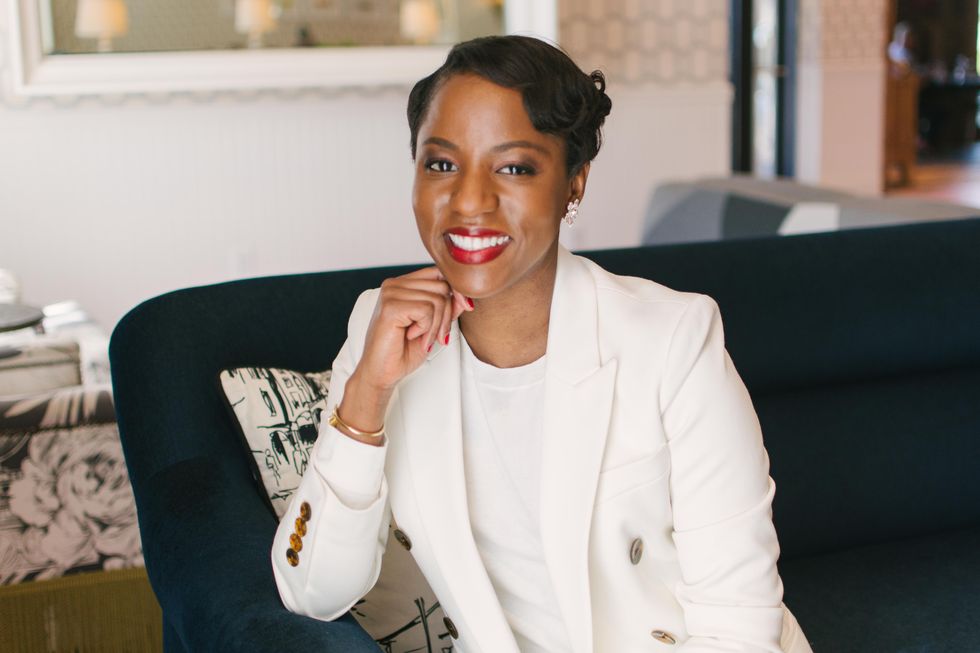
Image courtesy of Caroline Beffa Photography
I came to realize that being an introvert was so much of a struggle for me—not just as a professional but in my daily life as well—because I never took the time to recover after I do an event. Or a video. Or a webinar. Basically, anything that puts me in a place where I'm surrounded by a lot of people.
By not giving myself time to recover, I was just compounding the effect of how much I disliked being out there and being the face of my business. But when I allow myself to step back into my comfort zone and sit there in silence for as long as I need to, I feel rejuvenated and motivated enough to go out and do it again.
Since I discovered the benefits that this technique has on me, 'recovery day' made it to my weekly calendar. It usually occurs on Fridays and to make it possible, I hired a team to help me alleviate the work, take the pressure off of me and allow me to hide for a short amount of time. My staff has been the best at pointing out when I need them to take specific tasks off my plate. Because one thing about introverts, when they don't feel like doing something, that's when a whole nonessential delay game begins and time gets wasted, which is a fortune that as business owners, we cannot afford to lose.
On top of my team, I can also count on my three advisors to help me to be my best self. These ladies, whom I consider my sisters and aunties in my head, make sure to speak life and words of encouragement into me. They also make me uncomfortable, but I like it because the discomfort is private. It's not happening on the public stage, but one thing that's for sure is that it prepares me to stand with confidence in front of my public.
As I said earlier, impostor syndrome and introversion are unfortunately not easy to get rid of—provided it's possible. For me, these are uneasy feelings I'll always have to deal with and I can tell from experience that they evolve with each level that you reach throughout your journey. But there are going to be times when you'll have to tell them to sh*t up because you have work to do. You have a purpose to serve—and recovery day is coming soon anyway, so you can do it.
Follow Bola on Instagram @clevergirlfinance.
Let’s make things inbox official! Sign up for the xoNecole newsletter for daily love, wellness, career, and exclusive content delivered straight to your inbox.
Featured image courtesy of Candace Junée
Originally published on February 19, 2021
- 7 Ways To Turn Fear Into Financial Favor - xoNecole: Women's ... ›
- xoNecole Happy Hour Podcast Credit Money Shame - xoNecole ... ›
- How Garrain Jones Went From A Homeless R&B Singer With Six ... ›
- Money Talks: Princess Lomax, Six-Figure Nurse Practicioner ... ›
- What's Really Keeping You From Your Six-Figure Goals - xoNecole ... ›
- How One Woman Leveraged A $75K Job Offer To Land A Six-Figure ... ›
- Badass Women Inspired Me To Take The Entreprenurial Leap ... ›
- 7 Ways To Attract More Wealth & Abundance In Your Life - xoNecole ... ›
- Dominate Your Decade With These Simple Mindset Shifts ... ›
- 5 Black Women On How They Found Mentors - xoNecole: Women's Interest, Love, Wellness, Beauty ›
- 7 Ways To Turn Fear Into Financial Favor - xoNecole: Women's Interest, Love, Wellness, Beauty ›
- How To Finance A Startup Business - xoNecole: Lifestyle, Culture, Love, & Wellness ›
- Try These Top Six-Figure Jobs For Creatives - xoNecole ›
- How To Make Six Figures - xoNecole ›
- 5 Mindset Shifts That Have Changed My Life - The Blissful Mind ›
- 12 Ways to Shift Your Mindset and Embrace Change | Inc.com ›
- Six-Figure Salary - How To Earn $100,000 or More ›
- What Does A Six-Figure Salary Get You? | Clever Girl Finance ›
- How To Make 6 Figures — No Bullshit. | by Tim Denning | The ... ›

